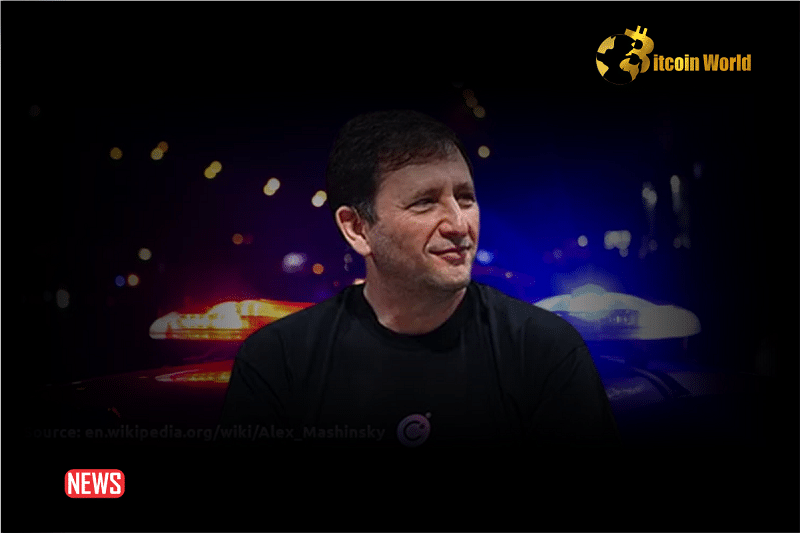The legal saga surrounding former Celsius CEO, Alex Mashinsky, continues to unfold, with US prosecutors firmly opposing his attempt to dismiss the criminal charges leveled against him. Mashinsky, once a prominent figure in the crypto lending space, is now battling serious accusations that could significantly impact his future. Let’s delve into the details of this high-profile case and understand why prosecutors are determined to see these charges stand.
Why are Prosecutors Insisting on Criminal Charges Against Mashinsky?
At the heart of the matter are two critical criminal charges: commodities fraud and market manipulation. Prosecutors argue these charges are not just procedural formalities but reflect a deliberate scheme by Mashinsky to:
- Mislead Investors: Allegedly, Mashinsky painted a deceptive picture of Celsius’s financial health and profitability, luring investors under false pretenses.
- Manipulate the Market: Prosecutors claim he manipulated the market for Celsius’s native token, CEL, artificially inflating its value to his benefit.
These actions, according to the prosecution, directly contributed to the eventual downfall of Celsius, culminating in its bankruptcy filing in July 2022 and Mashinsky’s resignation shortly after. The core argument is that Mashinsky’s actions weren’t just business missteps; they were intentional acts of fraud and manipulation that harmed countless investors.
See Also: Binance.US Has Suspended Operations In Florida And Alaska
Mashinsky’s Defense: Why He Wanted Charges Dismissed
Earlier this year, on January 12th, Mashinsky’s legal team launched a counter-offensive, arguing for the dismissal of the two criminal charges. His defense hinges on several key points:
- Contradictory Charges: Mashinsky contends it’s legally inconsistent to charge him with both securities and commodities fraud for the same conduct, specifically concerning Celsius’s Earn Program. He argues that classifying the same program as both a security and a commodity is illogical and legally unprecedented.
- Lack of Clarity in Crypto Regulation: He points to the ongoing ambiguity surrounding the regulatory classification of cryptocurrencies. Is crypto a commodity or a security? Mashinsky argues the lack of clear, consistent guidelines undermines the fairness of the charges.
- Unfair Notice on Market Manipulation: Regarding the market manipulation charge, Mashinsky claims he lacked fair warning that his actions could be considered criminal. He emphasizes the principle that laws should be clearly defined so individuals can understand what is legally permissible.
- Insufficient Legal Precedent: Mashinsky argues there isn’t enough legal precedent to classify open-market transactions as criminal under the cited laws, suggesting he’s being unfairly targeted.
- Request to Exclude Bankruptcy Mentions: He also requested the court to exclude any mention of Celsius’s bankruptcy during the trial, fearing it would unfairly prejudice the jury against him. He believes the term “bankruptcy” carries negative connotations that could cloud the jury’s judgment.
Prosecutors’ Rebuttal: Why the Case Must Proceed
Prosecutors have strongly refuted Mashinsky’s arguments, asserting that the charges are valid and necessary. Their counter-arguments are equally compelling:
- Statutes are Clear: They maintain that the laws Mashinsky is charged under clearly prohibit the deceptive practices he is accused of. They dismiss his claim of legal ambiguity, stating that his actions were demonstrably against fair market principles.
- Bankruptcy as Evidence: Prosecutors argue that Celsius’s bankruptcy is not extraneous information but direct evidence of the consequences of Mashinsky’s alleged fraudulent behavior. It illustrates the real-world impact of the actions he’s accused of.
- Sufficient Evidence and Precedent: The prosecution confidently states that they possess enough evidence and legal precedent to proceed with the case. They are convinced that Mashinsky’s actions warrant criminal prosecution.
AG’s Celsius Case Gains Momentum
Adding to Mashinsky’s legal woes, a parallel civil lawsuit brought by New York Attorney General Letitia James is also moving forward. In August, a Manhattan court justice rejected Mashinsky’s attempt to dismiss this case, finding sufficient grounds to suggest he misled Celsius investors.
This lawsuit, predating the federal criminal charges, accuses Mashinsky of deceiving investors about the safety and risks associated with investing in Celsius. Justice Margaret Chan, presiding over the case, affirmed that there’s a likely connection between investor losses and misrepresentations about Celsius’s financial stability.
Following this ruling, Attorney General James has indicated she will seek substantial penalties, potentially including barring Mashinsky from holding executive positions or engaging in any securities-related activities within New York. This civil case further intensifies the legal pressure on the former Celsius CEO.
The Road Ahead for Mashinsky
With both criminal and civil cases advancing, Alex Mashinsky faces a challenging legal battle. The prosecutors’ firm stance signals a determination to hold him accountable for the collapse of Celsius. The outcome of these cases will not only determine Mashinsky’s fate but also set important precedents for accountability and regulation within the burgeoning cryptocurrency industry. As this case progresses, the crypto world will be watching closely, as it underscores the increasing scrutiny and legal ramifications facing industry leaders.
Disclaimer: The information provided is not trading advice, Bitcoinworld.co.in holds no liability for any investments made based on the information provided on this page. We strongly recommend independent research and/or consultation with a qualified professional before making any investment decisions.




